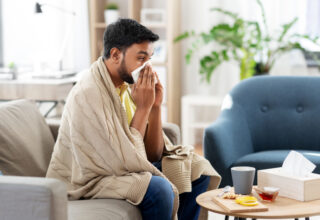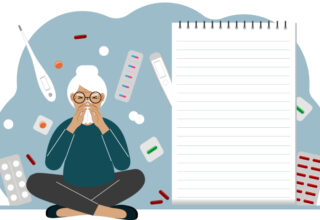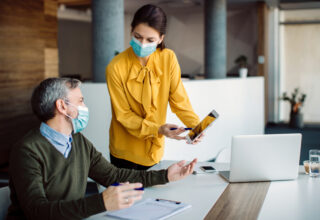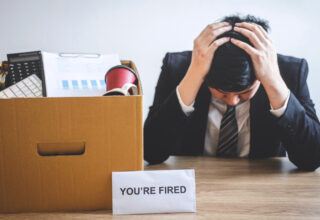Food poisoning isn’t just an inconvenience, it’s a health issue that affects millions of people every year. From mild discomfort to serious complications, food borne diseases can take a serious toll on your body and your peace of mind.
In this blog we are going to learn about food poisoning, what it is, what are its causes and symptoms, how it is treated and prevented, and when is the time to seek medical attention.
What is Food Poisoning?
Food poisoning is a type of foodborne illness that happens when you consume contaminated food or drinks. This contamination can be caused by bacteria, viruses, parasites, or toxins. Common symptoms of food poisoning are nausea, vomiting, and diarrhea.
Food poisoning is rarely serious and usually it tends to clear up on its own within a week. In most cases you can manage it at home.
What Causes Food Poisoning?
There are many germs or harmful things, called contaminants, that can cause food poisoning. Some common culprits include:
- Bacteria like E.coli, Listeria, and Campylobacter
- Viruses like hepatitis A and norovirus
- Parasites such as Giardia and Toxoplasma
- Toxins produced by bacteria like Staphylococcus and Clostridium botulinum
Symptoms of Food Poisoning:
Symptoms can vary depending on the type of germ or toxin involved and usually show up within a few hours or days of eating the contaminated food. However, in some cases symptoms may not start for a few weeks.
The common symptoms of food poisoning include:
- Nausea
- Vomiting
- Diarrhea (may contain blood or mucus)
- Stomach pain and cramps
- Fever
- Headache
- Fatigue
- Loss of appetite
- Feeling generally unwell
How Does Food Become Contaminated?
Food can be contaminated at any stage— whether it’s on the farm, in the sea, during harvesting, processing, storage, transportation, or preparation. Contamination is not just limited to the factories or restaurants, it can just easily happen in your own kitchen.
Common causes at home include:
- Poor hand hygiene— not washing hands properly after using the bathroom can transfer harmful bacteria in the food. Germs can also spread during food preparation and serving.
- Unclean kitchen tools and surfaces— dirty knives, cutting boards, or counters can harbor bacteria and spread them to other foods.
- Improper food storage— food left out at room temperature for too long can become contaminated. Food can also soil if it’s kept in the refrigerator for too long or if the fridge or freezer isn’t cold enough.
How Do You Get Food Poisoning?
You can have food poisoning in many different ways, but it often comes down to poor food handling or storage. Common causes include:
- Undercooked meat, poultry, or seafood
- Unwashed fruits and vegetables
- Raw dairy products or eggs
- Improperly stored or reheated leftovers
- Cross contamination in the kitchen (like using the same cutting board for raw chicken and salad vegetables)
Even some things as simple as forgetting to refrigerate the leftovers promptly can create the perfect environment for bacteria to grow.
How is Food Poisoning Diagnosed?
Based on your symptoms, a doctor can usually determine what type of food poisoning you are dealing with.
In more serious cases, your doctor may order blood tests and stool tests, or even test the food you ate, to find out the exact cause. A urine test might also be done to check if you are dehydrated due to the illness.
How to Treat Food Poisoning at Home?
For most healthy adults food poisoning clears up on its own with some rest and hydration. Here are a few tips that can help you recover:
- Stay hydrated— vomiting and diarrhea can lead to dehydration quickly. Sip water, clear broths, or oral rehydration solutions. Avoid alcohol, caffeine, or sugary drinks.
- Ease Back Into Eating— start with bland, easy to digest foods like toast, rice, and bananas. Avoid spicy, fatty, or dairy rich foods until your stomach feels better.
- Rest— give your body time to heal, resting helps your immune system fight off the infections more efficiently.
- Avoid Anti-Diarrheal Medication (Unless Advised)— sometimes it’s better to let your body flush out the toxins. Using medicines like loperamide can prolong certain infections, so always consult your doctor before taking any medication.
- Avoid going to school or work until it’s been at least 48 hours since you last experienced vomiting or diarrhea.
How to Prevent Food Poisoning?
Here are a few things you can do to prevent food poisoning at home:
- Wash your hands properly— thoroughly wash your hands with soap and water, especially after using the toilet, before eating, before and after handling food.
- Rinse products before use— wash all the fruits and vegetables under running water before eating, peeling, or cooking them.
- Clean kitchen tools thoroughly—use soapy water to wash knives, cutting boards, and utensils after contact with raw unwashed products.
- Cook meats and fish to a safe temperature—whole meats and fish: 145°F (63°C), with a 3-minute rest, ground meats: 160°F (71°C), poultry (whole or ground): 165°F (74°C). Use a food thermometer to be sure.
- Store leftovers safely— refrigerate leftovers in covered containers right after meals. Eat within 3 to 4 days or freeze if you think it would not be consumed within that time.
- Thaw and reheat food properly—defrost frozen items in the fridge, microwave, or cold water (in a sealed bag). Reheat leftovers to 165°F (74°C) before eating.
- Discard moldy food— Toss out moldy baked goods, soft fruits, vegetables, and nuts. For firm items like carrots or hard cheese, cut at least 1 inch (2.5 cm) around the moldy areas.
- Clean your refrigerator regularly— wipe the inside of your refrigerator using a mix of baking soda and water. Clean the moldy areas with one tablespoon of bleach and one quart of water.
- Stay informed— check food recalls and expiration dates, especially on perishable items. If something smells odd, looks suspicious, or gives you a bad feeling, trust your gut and toss it.
When to See a Doctor:
While many people recover from food poisoning within a day or two, certain situations call for medical help. Seek medical attention if you experience:
- High fever (over 101.5°F or 38.6°C)
- Blood in your stool or vomit
- Prolonged vomiting or inability to keep liquids down
- Signs of dehydration (dry mouth, dizziness, dark urine)
- Symptoms that last more than 3 days
Final Thoughts:
Food poisoning is a common condition that most of us may deal with at some point in life, but the more you understand about it, the better prepared you will be. A few simple habits like proper handwashing, safe food storage, and careful cooking can go a long way in keeping your meals delicious and safe.








